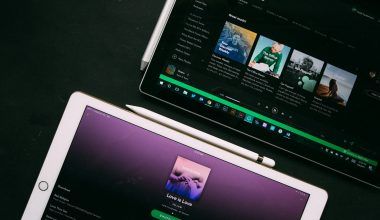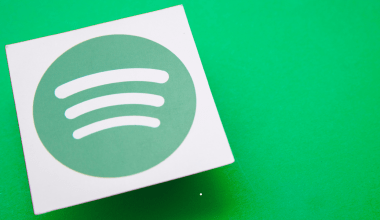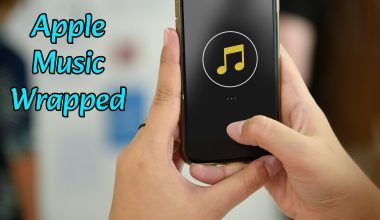Songwriting is one of the most rewarding skills for musicians. It’s the process of turning your thoughts, emotions, and ideas into music that touches hearts and moves feet. Whether you’re just starting out or you’ve written dozens of songs, there’s always something new to learn. With the right guidance, you can write songs that people love and even sell your music on platforms like Beatport.
This guide is here to help you improve your songwriting skills. From coming up with ideas to polishing your final track, you’ll find tips to make your songwriting journey easier and more enjoyable.
Why Songwriting is Important
Songs are powerful. They can make people dance, cry, laugh, or think. A good song tells a story or captures a feeling, making it unforgettable. For musicians, songwriting is more than just creating music—it’s about sharing a piece of yourself with the world.
If you dream of seeing your music on charts or platforms like Beatport, songwriting is your key. Your songs represent your brand and connect you with listeners.
1. Start with an Idea
Every song starts with an idea. It could be a word, a feeling, a memory, or even a simple melody humming in your head. Pay attention to the world around you—anything can inspire a song!
- Tip: Keep a notebook or use your phone to jot down ideas as they come.
- Example: If you see a sunset that makes you feel calm, write about the colors, the mood, and how it makes you feel.
Why This Matters: Having a clear starting point makes it easier to build your song.
2. Find Your Audience
Knowing your audience is one of the most important songwriting tips. Are you writing for people who love pop music, dance tracks, or heartfelt ballads? Tailoring your song to your audience helps it resonate with them.
- Tip: If you want to sell your music on platforms like Beatport, explore their trending genres to understand what’s popular.
- Example: If you’re writing an upbeat dance track, focus on strong beats and simple, catchy lyrics.
Why This Matters: When you write with a specific audience in mind, your songs are more likely to connect and succeed.
3. Focus on Catchy Melodies
The melody is the heart of your song. A good melody sticks in the listener’s mind and makes them want to hear your song again and again.
- Tip: Sing or hum random tunes while walking or relaxing. Record anything that sounds interesting.
- Example: Think about songs like “Happy” by Pharrell Williams or “Shape of You” by Ed Sheeran. Their melodies are simple but unforgettable.
Why This Matters: A strong melody makes your song memorable and enjoyable.
4. Write Honest Lyrics
Lyrics are where you tell your story. They don’t have to be complicated or poetic—just honest. Write about what you know, feel, or imagine.
- Tip: Use simple words that people can relate to.
- Example: Instead of saying, “I’m engulfed in melancholy,” you can say, “I feel sad today.” Simple language has more impact.
Why This Matters: Honest and relatable lyrics create an emotional connection with your audience.
5. Experiment with Song Structure
Most songs follow a common structure like:
- Verse: Tells the story.
- Chorus: The main part of the song, repeated several times.
- Bridge: A unique section that adds variety.
But don’t feel limited. Try different formats to keep things interesting.
- Tip: Experiment with starting your song with the chorus or ending with a bridge.
- Example: Listen to “Bohemian Rhapsody” by Queen. It doesn’t follow traditional song structure but is still a masterpiece.
Why This Matters: Playing with structure helps your song stand out.
6. Start Simple
When starting a new song, don’t try to make it perfect right away. Focus on getting your ideas down first.
- Tip: Start with just a guitar or piano and a notepad.
- Example: Record a rough demo of your song using your phone. Don’t worry about mistakes at this stage.
Why This Matters: Simplicity helps you focus on the core elements of your song.
7. Collaborate with Others
Sometimes, working with others can bring fresh ideas and perspectives. Another songwriter, producer, or even a friend can help you see your song differently.
- Tip: Join songwriting communities or workshops to meet like-minded creators.
- Example: If you struggle with lyrics, find someone who’s great at writing them and focus on the melody.
Why This Matters: Collaboration can help you grow and create better songs.
8. Practice Writing Every Day
Like any skill, songwriting improves with practice. Even if you don’t feel inspired, try writing something every day.
- Tip: Set aside 15-30 minutes daily for songwriting. It doesn’t have to be perfect—just write.
- Example: Write a short verse about your day or how you’re feeling.
Why This Matters: The more you practice, the easier songwriting becomes.
9. Use Technology to Help
In today’s world, there are many tools to help you write better songs. From apps to music software, technology can make the process easier.
Tools to Try:
- DAWs (Digital Audio Workstations): Logic Pro, FL Studio, or Ableton for creating music.
- Rhyme Apps: Lyric Notepad or Rhymer’s Block for finding rhymes.
- Beatport Charts: Discover trending sounds and styles.
Why This Matters: Technology helps bring your ideas to life.
10. Get Feedback
Don’t be afraid to share your songs with others. Honest feedback can help you see what’s working and what needs improvement.
- Tip: Share your song with trusted friends or upload it to a music community for feedback.
- Example: Platforms like SoundCloud or Reddit’s songwriting forums are great for feedback.
Why This Matters: Feedback helps you grow as a songwriter.
11. Learn from Great Songs
Listening to great songs can teach you a lot about what works in songwriting. Pay attention to how they’re structured, how the lyrics flow, and how the melodies connect.
- Tip: Choose 5 of your favorite songs and analyze them. What do you love about them? What can you learn?
- Example: Listen to songs by legends like Bob Dylan, Adele, or Billie Eilish for inspiration.
Why This Matters: Learning from the best helps you improve faster.
12. Polish Your Songs
Once you’ve written a song, take the time to refine it. Tweak the lyrics, adjust the melody, and make sure everything fits together.
- Tip: Play your song multiple times to see if anything feels off.
- Example: Try singing your song to a friend and see if they understand the message.
Why This Matters: A polished song has more impact
13. Stay Inspired
Sometimes, it’s easy to feel stuck or uninspired. When this happens, take a break and find new sources of inspiration.
- Tip: Watch movies, read books, or spend time outdoors to recharge your creativity.
- Example: A walk in nature might give you ideas for a peaceful, reflective song.
Why This Matters: Inspiration is all around you—use it to fuel your songwriting.
14. Sell Your Music
Once you’ve written and recorded your songs, you can share them with the world. Platforms like Beatport allow you to sell your music and reach a global audience.
Steps to Get Started:
- Create a high-quality recording of your song.
- Distribute it using platforms like DistroKid or TuneCore.
- Promote your music on social media.
Why This Matters: Sharing your songs helps you grow your audience and even make money from your passion.
15. Keep Going
Songwriting is a journey, not a destination. The more you write, the better you’ll get. Don’t be discouraged by challenges—every songwriter faces them.
- Tip: Celebrate small wins, like finishing a verse or getting positive feedback.
- Example: Keep a journal of your progress to see how far you’ve come.
Why This Matters: Persistence leads to success.
Final Thoughts
Songwriting is an incredible way to express yourself and connect with others. By following these songwriting tips, you can write songs that are meaningful, memorable, and unique. Whether your goal is to sell your music on Beatport or simply share your stories with the world, the key is to stay inspired, keep learning, and never give up.
Related Articles:
For further reading, explore these related articles:
- Creating Music Covers: Essential Tips for 2024
- 5 Music Marketing Tips for Indie Artists
- Tips for Making Cover Songs on YouTube
For additional resources on music marketing and distribution, visit Deliver My Tune.






